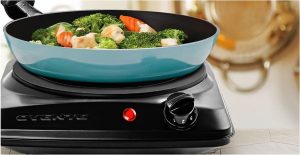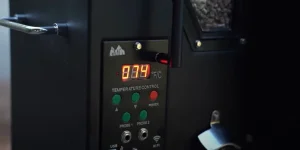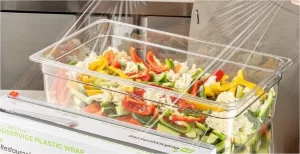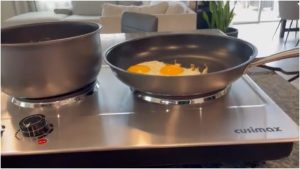Top-Rated Pontoon Boat Grills Reviewed for 2025
Note: This article may contain affiliate links, which means if you make a purchase following our links won’t cost you extra, but we may earn a commission. Learn more
Best pontoon boat grill options combine durability, portability, and efficient heat output for seamless on-water cooking. The right choice depends on grill type, mounting style, and fuel preference to match your boating lifestyle.
Gas grills are popular for pontoon boats due to their quick ignition and consistent heat control. Brands like Magma and Kuuma offer marine-grade stainless steel models resistant to saltwater corrosion. Look for foldable legs or pedestal mounts to save deck space when not in use. Propane models are convenient, with easy-to-replace tanks, while natural gas setups provide endless fuel if your boat has a built-in line.
- Best Choice: Magma Cabo Grill

Charcoal grills bring smoky flavor but require more effort to light and maintain. They work well for longer trips where you have time to manage the fire. Just ensure proper ventilation and a stable mounting system to prevent accidents. Some pontoon owners prefer electric grills for their clean operation, but they rely on your boat’s power supply, making them less ideal for remote outings.
Mounting options vary—some grills clamp onto railings, while others use fixed pedestals. A locking mechanism keeps the grill secure in rough waters. Accessories like wind guards and removable drip trays improve safety and cleanup.
For the best performance, pick a grill with high BTUs for fast heating and rust-proof materials to withstand marine conditions. Compact designs with easy storage make grilling hassle-free.
1. Magma Products T10-185 Pedestal Rectangular Grill
Capacity: 10.25″ x 16.5″ cooking surface
Key Features
- Stainless steel construction
- Folding legs for compact storage
- Adjustable heat control
- Easy-to-clean porcelain grates
- Secure mounting system
Specialty
- Marine-grade durability
- Lightweight yet sturdy
- Quick setup and takedown
Compatible For
- Pontoon boats
- Sailboats
- Yachts

Reviews: This grill is perfect for pontoon boats due to its rust-resistant stainless steel build and space-saving design. The adjustable heat control ensures even cooking, making it ideal for marine use.
Special Note: Always secure the grill properly when in use. Check local boating regulations for grill usage. We are not responsible for misuse.
2. Cabo Adventurer Marine Gas Grill
Capacity: 15.5″ x 11.5″ cooking surface
Key Features
- Heavy-duty cast aluminum body
- Push-button ignition
- Removable drip tray
- Locking lid for transport
- High BTU output
Specialty
- Corrosion-resistant materials
- Fast heating performance
- Compact and portable
Compatible For
- Fishing boats
- RVs
- Tailgating

Reviews: The Cabo Adventurer grill is great for pontoon boats with its quick ignition and durable build. Its compact size fits well on smaller decks without sacrificing cooking power.
Special Note: Ensure proper ventilation when using propane grills. Follow manufacturer guidelines for safe operation.
3. BTG Tailwaves Stainless Steel Grill
Capacity: 17″ x 12″ cooking surface
Key Features
- Built-in thermometer
- Foldable legs for portability
- Even heat distribution
- Rust-proof stainless steel
- Easy assembly
Specialty
- Multi-purpose use
- Lightweight design
- Includes carrying bag
Compatible For
- Camping trips
- Beach outings
- Picnics

Reviews: This grill is a versatile choice for pontoon boats, offering a large cooking area and convenient portability. The built-in thermometer ensures perfect grilling every time.
Special Note: Avoid using on flammable surfaces. Clean after each use to maintain longevity. We are not liable for accidents.
Top Features to Look for in a Pontoon Boat Grill
Marine-Grade Construction
Stainless steel or powder-coated aluminum resists rust and corrosion. Saltwater exposure demands durable materials that hold up over time.
Secure Mounting System
A stable base or rail clamp prevents tipping in rough waters. Look for locking mechanisms to keep the grill steady while cooking.
Adjustable Heat Control
Precise temperature settings help avoid burnt or undercooked food. Gas grills often offer better control than charcoal models.
Compact and Foldable Design
Space-saving features like collapsible legs or detachable parts make storage easier on smaller boats.
Easy Cleanup
Removable grease trays and non-stick surfaces simplify maintenance after use.
High BTU Output
More heat means faster cooking, especially useful when feeding a group.
Wind Resistance
Built-in wind guards or heavy lids help maintain consistent temperatures in breezy conditions.
How to Safely Use a Grill on a Pontoon Boat
Grilling on water requires extra precautions to prevent accidents. Always check local regulations regarding open flames on boats before starting.
Step 1: Choose a Stable Location
Place the grill on a flat, non-flammable surface away from fuel tanks and seating areas.
Step 2: Secure the Grill Properly
Use clamps or mounts designed for marine use to prevent movement while cooking.
Step 3: Monitor Flames and Wind
Keep a fire extinguisher nearby and adjust positioning if wind causes flare-ups.
Step 4: Never Leave Unattended
Stay close to the grill at all times to manage heat and avoid spills.
Step 5: Turn Off Fuel Correctly
Close propane valves fully and wait for the grill to cool before storing.
Other Uses for Your Pontoon Boat Grill
Tailgating and Camping
Detachable grills work great for shore lunches or RV trips. Portable designs make them versatile beyond the boat.
Beach Cookouts
Carry the grill to shore for picnics without sacrificing cooking power.
Emergency Cooking
If power goes out at home, a propane grill serves as a backup stove.

Gas vs. Charcoal vs. Electric: Which Grill Type is Best for Your Pontoon?
Gas grills lead in convenience with instant ignition and adjustable heat. Propane tanks are easy to swap, making them ideal for quick meals. They lack smoky flavor but excel in speed and control.
Charcoal grills deliver richer taste but need more time to light and manage. Ash disposal can be messy, and they require steady monitoring to maintain temperature.
Electric grills suit boats with reliable power sources. They’re clean and lightweight but limit mobility since they depend on shore power or generators.
Choose based on your priorities—speed (gas), flavor (charcoal), or convenience (electric). Most pontoon owners prefer gas for its balance of performance and ease.
Keeping Your Pontoon Boat Grill in Top Condition
Proper care extends your grill’s lifespan and ensures safe operation. Start with routine cleaning after each use to prevent grease buildup and food residue. A wire brush works well for grates while warm, and mild soap with water cleans exterior surfaces.
Protect against corrosion by applying marine-grade stainless steel polish periodically. Saltwater exposure accelerates rust, so focus on hinges and connection points. Store the grill in a dry place or use a waterproof cover if leaving it on deck.
Inspect gas lines and connections before each outing if using propane. Look for cracks or leaks by applying soapy water to fittings – bubbles indicate issues needing attention. Replace worn parts immediately to avoid hazards.
Deep clean monthly by removing all components and soaking removable parts in warm, soapy water. Check manufacturer guidelines for specific care instructions based on your grill material.
Must-Have Additions for the Ultimate Grilling Experience
Non-Slip Grill Mats
Place these under your grill to protect boat surfaces from grease drips and heat damage. Easy to clean and store.
Marine-Grade Utensil Set
Stainless steel tools with rubber grips won’t rust and stay secure in rough waters. Look for hooks to keep them handy.
Portable Propane Gauge
Avoid running out of fuel unexpectedly. This small device shows remaining propane levels accurately.
Insulated Food Carrier
Keep prepared items hot or cold until serving time. Essential for multi-course meals on the water.
Collapsible Side Table
Provides extra workspace for food prep near the grill. Folds down when not needed.
Expert Suggestions for Better On-Water Grilling
Optimal Grill Placement
Position your grill downwind from seating areas to keep smoke away from guests. Ensure stable footing and easy access.
Pre-Trip Meal Preparation
Marinate meats and chop vegetables at home to minimize onboard prep work. Use sealed containers for mess-free storage.
Temperature Management
Lower heat settings work better on moving water as wind can intensify flames unexpectedly.
Backup Ignition Source
Keep waterproof matches or a backup lighter in case electronic ignition fails.
Post-Cooking Care
Allow the grill to cool completely before covering or storing to prevent moisture buildup.
- Read More: 5 Best Digital Meat Thermometers Reviewed
Common Questions About Pontoon Boat Grills
What Size Grill Works Best for Most Pontoon Boats?
Compact models between 15-20 inches wide fit most pontoon configurations without overcrowding deck space. Measure your available area before purchasing. Consider fold-down designs for smaller boats needing flexibility.
How Do You Prevent Grease Fires on a Boat Grill?
Regularly empty the drip tray and avoid excessive fatty foods. Keep a marine fire extinguisher within reach and never leave cooking unattended.
Can You Use Regular Charcoal in a Marine Grill?
While possible, marine-specific charcoal burns cleaner and produces less ash. Standard charcoal may create more mess in windy conditions.
What Safety Certifications Should a Marine Grill Have?
Look for ABYC or US Coast Guard compliance markings. These ensure the grill meets marine safety standards for materials and construction.
Are Infrared Grills Suitable for Pontoon Use?
Infrared models work well but consume more fuel. They excel at quick, high-heat cooking but may need additional wind protection.





